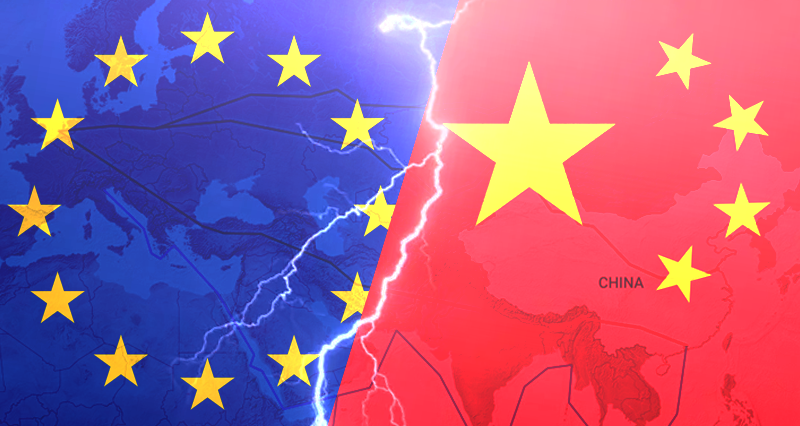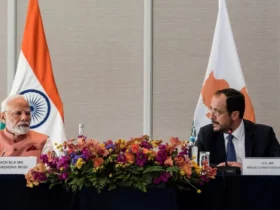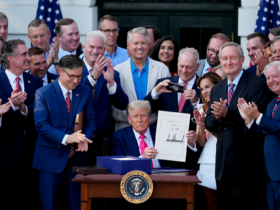Once again the European Union, pushed by the United States, has made a self-defeating move against China, continuing their participation in Washington’s New Cold War.
EU foreign ministers have approved plans to develop a rival global investment strategy to China’s Belt and Road Initiative in order to counter Beijing’s growing influence in countries across the world. The “Globally Connected Europe” strategy involves pushing for investments in visible projects to link Europe to the world starting in 2022.
The bloc’s economic, foreign and development policies, as well as security interests, will be promoted, while advancing what are pompously termed European values. What these values are beyond a policy of subordination to US imperialism and the enforcement of economic austerity is up for debate.
Furthermore, Brussels has already entered into agreements with Japan and India, Beijing’s strategic rivals, in order to facilitate the implementation of a series of energy, digital and infrastructure projects capable of bringing Asia and Europe closer together. But that is not all. The EU’s plan draws inspiration from a similar commitment made by the G7, using wealthy Western banks as lenders and wreckers of the New Silk Road.
“It has a broader purpose to put connectivity at the center of our external policy,” the EU’s top diplomat Josep Borrell said during a press conference. “We started to do this two years ago with our agreement with Japan, but it seems that today is much more important for us to look at the connectivity problems with the broader Middle East and looking forward to Central Asia and China, but not with the same approach and the same purposes that China has with the Belt and Road initiative.”
Meanwhile Beijing, which launched its initiative in 2013, has already begun investing in nearly 70 different countries and international organizations, including in EU member state Greece at the port of Piraeus and also in Italy, demonstrating the Mediterranean Sea’s importance for transport and infrastructure projects.
The New Silk Road brings, empirically, immediate benefits for the countries involved, allowing them to equip themselves with the capital necessary for the construction of expensive infrastructures (roads, railways, ports and airports).
In fact, the total investments made this decade are estimated at around $1,800 billion with the Asian Infrastructure and Investment Bank as the main lender.
Thanks to the modernization of infrastructures, 67 countries that already adhere to the Silk Road have greater and more stable growth prospects.
Former Belgian Prime Minister Yves Leterme said in an interview with Xinhua that European Union leaders should seize every opportunity to ensure good cooperation with China.
“Identifying lots of domains in which stronger cooperation with China will deliver lots of benefits for all parts of the world,” added Leterme. “I think stronger cooperation with China is needed in the fields of trade, economics, R&D, on climate change issues and on safety and security.”
Leterme subscribes to the idea that multilateralism is key to tackling common challenges in the future, and welcomes China’s commitment to playing a more prominent role on the international scene.
Speaking of the China-proposed Belt and Road Initiative (BRI), he noted, “It is very clear that in the future we need more infrastructure connections with Central Asia, Asia and even the Far East, regions where economic growth is largely happening today.”
“We have an interest in Europe to be even better connected with Asia”. During the interview, Leterme stressed that one way of securing better EU-China ties is to focus on developing people-to-people exchanges, saying that understanding each other is a catalyst for sustainable and lasting peace, which in turn guarantees better social and economic development.
Why does the European Union reject win-win cooperation with China?
An explanation can be found in Biden’s uncritical adhesion to Cold War 2.0 against Beijing. There is a hardline faction within the EU that rejects closer economic and political ties with China. EU policy makers generally believe that the US, as a NATO partner, is the force they need to rely on.
Professor Michael Luders explained to the Global Times newspaper: “There are many means by which the US can influence European public opinion. The most effective way is to divide the world into “good guys” and “bad guys,” as already mentioned. Most importantly, the US has positioned its political and economic rivals, Russia and China, as the “bad guys”. Whatever the political leadership there does or does not do, it is always interpreted as wrong and a threat to freedom and democracy. As a result, objective coverage of China or Russia by the Western media is very rare. For example, they see the Belt and Road Initiative (BRI) as an attempt by China to weaken and infiltrate the West. China is seen primarily as a “threat” rather than an economic or political partner”.
The limits of the rival European plan
The details of the EU’s plan are, at least for the moment, still obscure. Even the available budget is still unknown. There is little more known about its time frame, the scale of implementation and the role that the European Investment Bank might play. Interactions between the Union and non-European private companies could be complicated by the fact that the latter are not used to EU bureaucracy and institutions. Institutions, as Jonathan Arnohot recalled on CGTN, may not be flexible enough and able to achieve strategic planning appropriate to the context.
The former MEP writes: “The European Union’s structures are highly complex, with input from so many sources that often it becomes difficult to discern precisely what is being proposed and why. The European Council’s recent meeting seems to be a typical example. The word “China” is not mentioned even once in the eight-page communique. Yet, as one EU diplomat said, it “has China written all over it.”
The plan for a ‘globally-connected Europe’ is written in the conventional language of European bureaucracy: “The Council highlights the importance of Connectivity Partnerships that should promote, in full cooperation with beneficiaries, compatibility of policy approaches and complementarity in preparation, implementation and financing of sustainable projects”.
Even if it’s not clearly spelled out, the European Council clearly wishes to compete with China’s Belt and Road Initiative. However, it seems unlikely that European countries, weakened by Covid-19 and obtuse austerity policies substantially maintained even in the pandemic, will be able to invest the necessary amounts to implement the ambitious plan. At the moment, it seems more of an aspiration than a concrete project.

















Leave a Reply